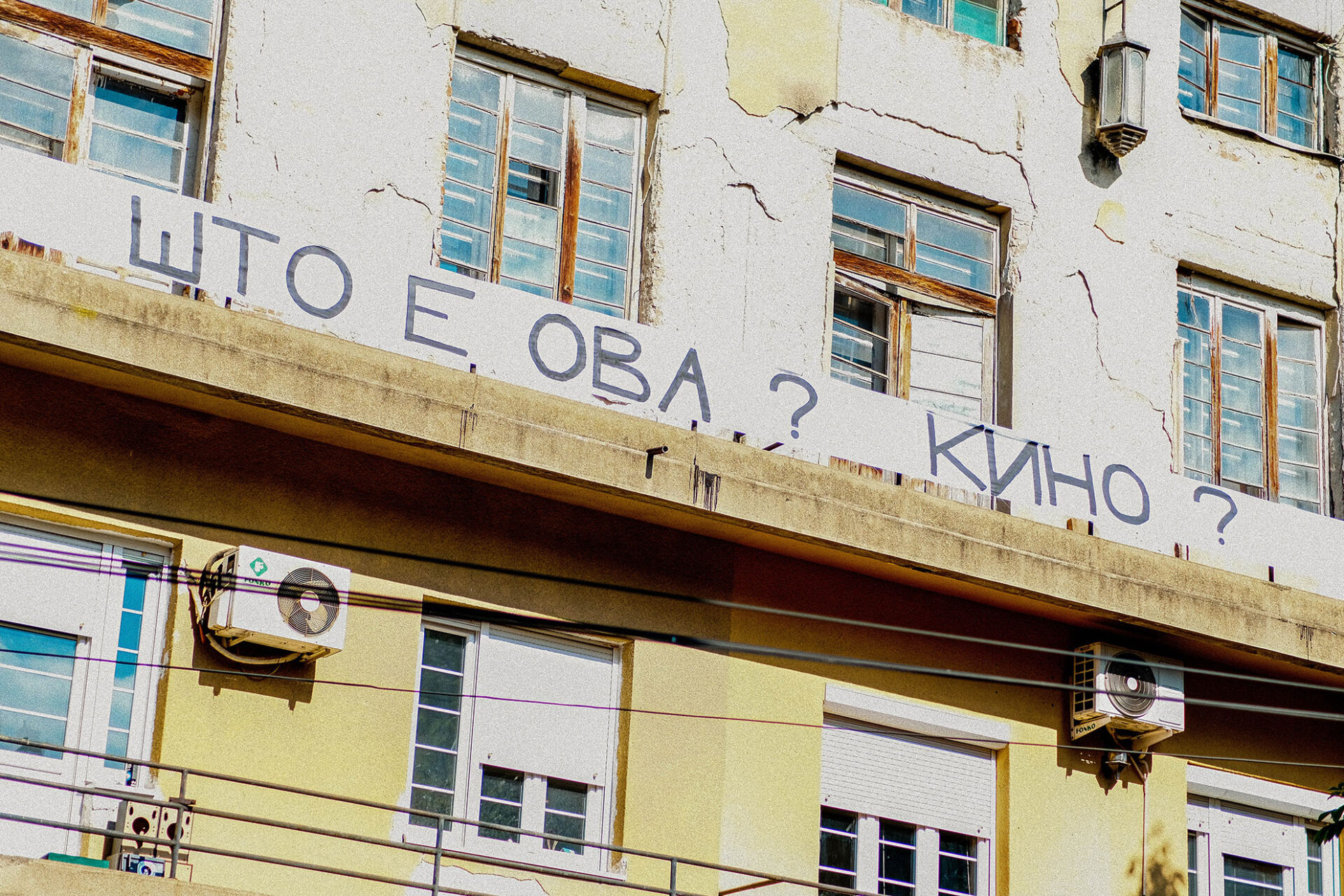City as a Stage
Co-creating the future of a former cinema in Skopje
City as a Stage is a collaborative project that engages with ecological, social, and cultural transformation through urban practice. Together with students, residents, and practitioners in Skopje, we explore how a disused cinema in the Railway Housing Estate might be reactivated as a shared space for the community.
Through lectures, workshops, and public interventions, the project creates a dialogue between grassroots urban strategies from Berlin and the specific conditions of Skopje. Floating University Berlin brings its experience as an experimental learning site situated in a rainwater retention basin, while AKTO-FRU (The Faculty of Things That Can’t Be Learned) grounds the process in local knowledge and relationships.
First Act: Lecture, Workshop, and Performative Walk
In December 2024, City as a Stage unfolded through a series of public events in Skopje. A lecture at the Faculty of Architecture introduced Floating University’s site-based methodologies, focusing on the long-term transformation of the rainwater basin at Tempelhof into a hybrid urban landscape. The talk opened a discussion on how such approaches might resonate within Skopje’s own spatial and political context.
This was followed by a three-day workshop at the Laboratory of Spatial Practices, where students explored future possibilities for the former cinema in the Railway Housing Estate. Working in groups, they developed speculative scenarios shaped by site research, local histories, and collective design. These proposals were shared during a performative walk as part of the AKTO Festival, where participants engaged in role-play and conversation, activating the cinema’s potential through shared imagination and public exchange.
Second Act: Methods of Urban Practice
In May 2025, City as a Stage entered a new phase—shifting from imagining to activating. Returning to the Faculty of Architecture, Kristin Lazarova and David Nil Morsi gave a second public lecture, sharing transferable methods and tools from their work with Floating University Berlin, the Urbane Praxis Network, Urbane Liga, and Kulturraummanagement Cologne. The talk focused on self-organisation, prototyping, and cross-sectoral collaboration as key strategies for sustainable urban transformation, offering practical insights for local actors in Skopje.
The lecture was followed by a four-day summer school at the former cinema in the Railway Housing Estate. Working in three groups—Narrative, Program, and Kitchen—students and facilitators developed concrete proposals for the space. A shared story and visual identity took shape in the form of a large banner on the cinema’s façade. A preliminary programme plan outlined future cultural, educational, and neighbourhood-based activities. And a concept for a community kitchen was designed as a catalyst for everyday exchange. Through collective work and on-site interventions, the workshop marked a first step in activating the cinema—not by completing its transformation, but by beginning to live it.


